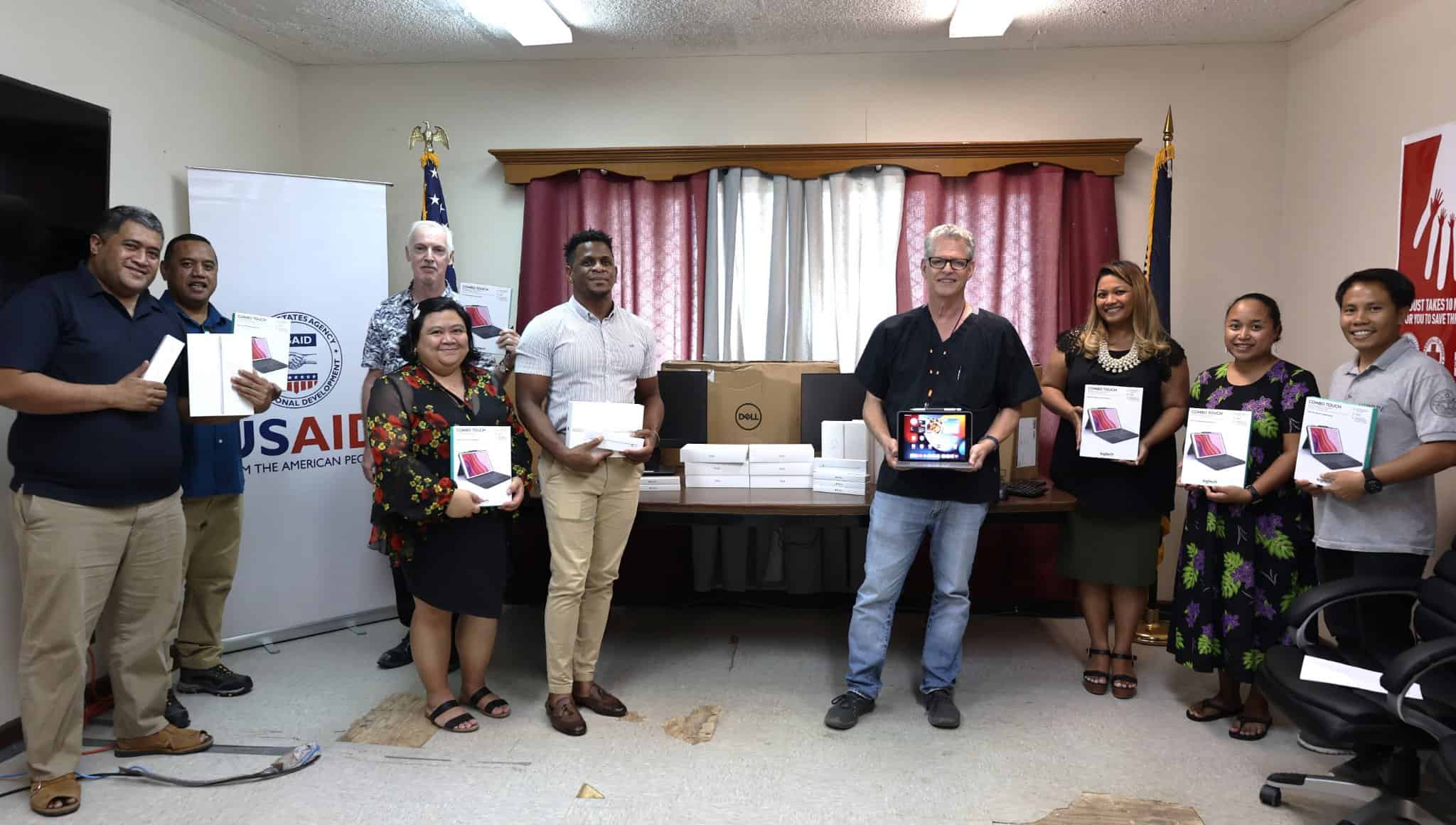The Marshall Islands lost its COVID-free status Monday when tests confirmed six positive cases in the capital, the first known community transmission since the pandemic started in early 2020.
It was not immediately clear the source of the COVID spread as Marshall Islands borders have been closed since March 2020 and rules currently require 10 days of government-managed quarantine prior to release. The six people who tested positive Monday had “no travel history, no contact with anyone who was in quarantine,” said Health Secretary Jack Niedenthal.
The government moved quickly Monday night to announce a halt to the start of the new school year with all island schools scheduled to open this week.
President David Kabua delivered a brief 90-second statement to the nation Monday via an online live stream in which he announced that the Ministry of Health and Human Services had confirmed six people positive in the capital of Majuro. The President’s short speech was the first official notice of news that in the fashion of a small island, had spread several hours prior to his speech. “I advise people to remain calm and follow the protocols to prevent COVID,” Kabua said.
President Kabua advised the country to follow established protocols of wearing facemasks when in public.
Notices on social media went viral in the minutes and hours after people learned of the first-ever COVID community spread in this isolated north Pacific nation.
Although there were no rules except for school closure announced by government, within minutes of the official confirmation of the cases, a national basketball tournament game was halted mid-way through the contest Monday night, and some restaurants began shutting their doors.
The Office of the Chief Secretary said that the start of the new school year, which opened yesterday at some public schools and was scheduled to open later this week in private schools, would now be postponed for two months. While businesses and government offices can continue as usual, hospital services will be modified and masks will be required in public for the next two months, said a statement issued by the government Monday.
The government also announced a halt to travel by plane or ship to remote outer islands in hopes of restricting spread of COVID to islands that have only rudimentary medical care services available.
“The most important lesson learned from Palau’s experience with a wave of COVID starting in January is to protect the hospital during the initial stages of a COVID outbreak,” said Niedenthal. “This is to protect both the patients already in hospital from being infected by incoming COVID patients and, of equal importance, minimising the exposure of hospital staff so they can remain functional and on the job.”
The Ministry of Health and Human Services moved quickly Monday night to set up previously planned “test and treat” facilities in designated locations in the community. Niedenthal said the number one lesson learned from watching other nations respond to their COVID waves was the priority of “protecting the hospital.” The goal, he said, is to have people use community test and treat facilities where health officials will perform tests and determine treatment needed.
Laboratory tests of people who were positive for COVID while in managed quarantine last month showed they were all BA.5 variants. RMI health officials said they were proceeding on the basis that BA.5 is what they are seeing.

One Comment “WHO: Pacific islands facing a bumpy road toward the ‘Healthy Islands’ vision”
Comments are closed.